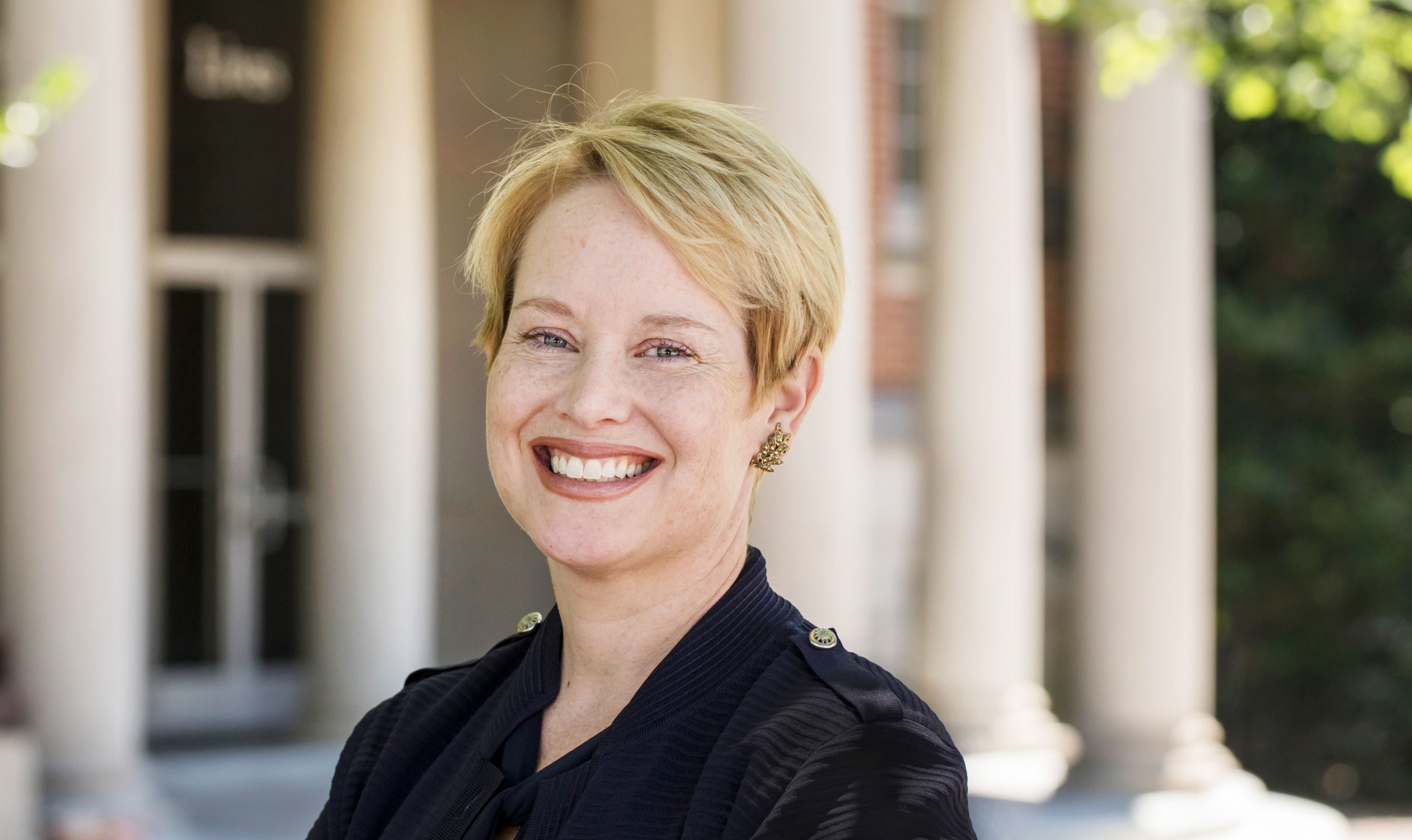Lora Cohen-Vogel, the School of Education’s Frank A. Daniels Distinguished Professor of Public Policy & Education, has been appointed to the National Academies of Sciences’ Committee on the Future of Educational Research.
The committee, which includes 15 leading educational researchers from across the country, will work to inform future directions of the Institute of Education Sciences, the research and evaluation arm of the U.S. Department of Education.
The areas the committee will examine include the following:
-
• Critical problems or issues on which new research is needed;
• New methods or approaches for conducting research; and
• New and different types of research training investments.
“There is an emerging common sense about a future research enterprise in education that brings together the best science about evidence-based practice with know-how for enacting change in organizations,” Cohen-Vogel said. “That means focusing on problems of practice, learning from variation, building capacity for implementation at scale, and centering educational equity.”
Cohen-Vogel, who teaches primarily in the Ed.D. program in Educational Leadership and the Ph.D. strand in Policy, Leadership, and School Improvement, also serves as the School’s director of interprofessional education and practice.
Her teaching and research focus on education policy and politics, teacher quality, continuous improvement research and bringing to scale programs and processes for system-level improvement and equity.
She is serving as editor of the upcoming second volume of the “AERA Handbook of Education Policy Research.” The book, the first volume of which was published by the American Educational Research Association in 2009, is the premiere text for the field of educational policy research. It is intended for scholars and graduate students, addressing the state of education policy research.
As associate director of the IES-funded National Center for Research and Development on Scaling Up Effective Schools, Cohen-Vogel helped lead research-practice partnerships that used the science of improvement to raise schooling outcomes for traditionally underserved students in two of the nation’s largest school districts.
In North Carolina, she is collaborating with The ncIMPACT Initiative at the UNC-Chapel Hill School of Government and myFutureNC to support ten local collaboratives working to boost the proportion of North Carolinians with high-quality career credentials or a postsecondary degree. Additionally, in partnership with six of the state’s rural school districts, she helps lead a project aiming to extend early learning gains as part of the IES-funded Early Learning Network, a consortium of scientists in six research centers and universities across the country.
IES provides scientific evidence on which to ground education practice and policy. It is the nation’s leading source for rigorous, independent education research, evaluation, and statistics, supporting a range of research activities with the goal of improving the quality of education in the United States.
The National Academies of Sciences, Engineering, and Medicine chose to convene the advisory committee as IES approaches the 20th anniversary of its founding next year.
More details about the NAS Committee on the Future of Educational Research and a roster of its members are here: https://www.nationalacademies.org/our-work/the-future-of-education-research-at-the-institute-of-education-sciences-in-the-us-department-of-education.
